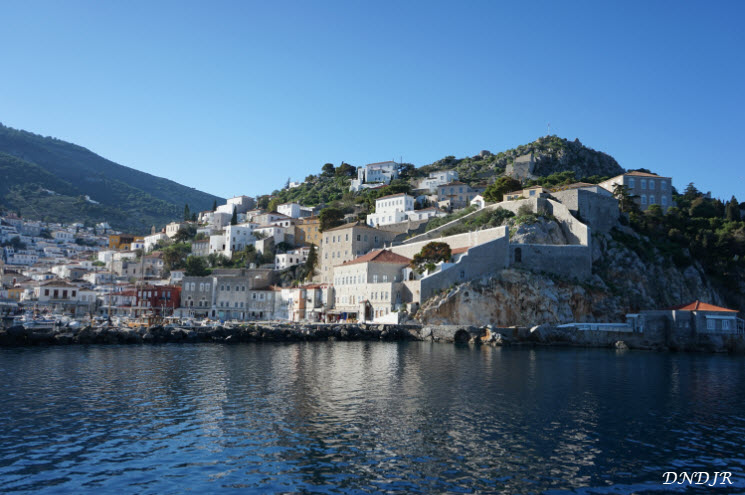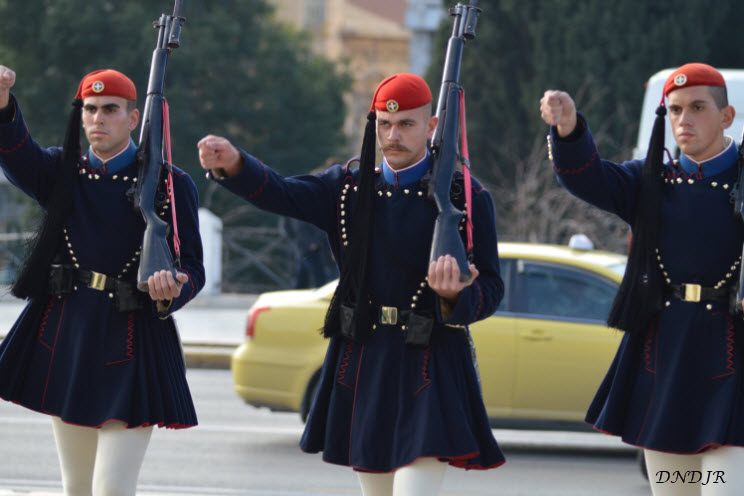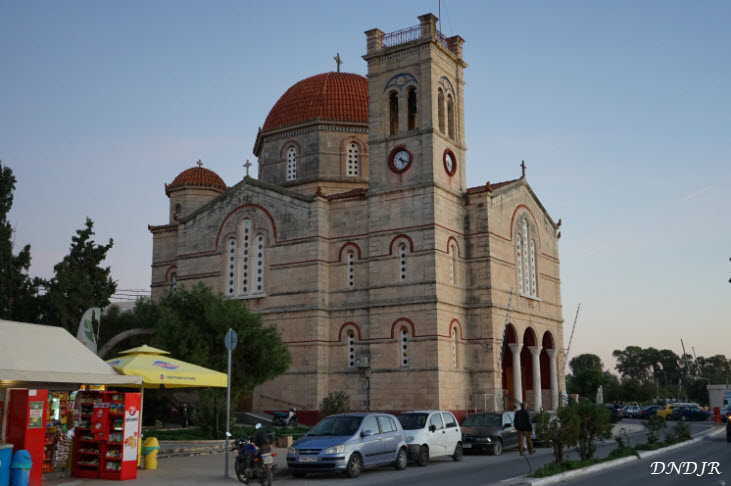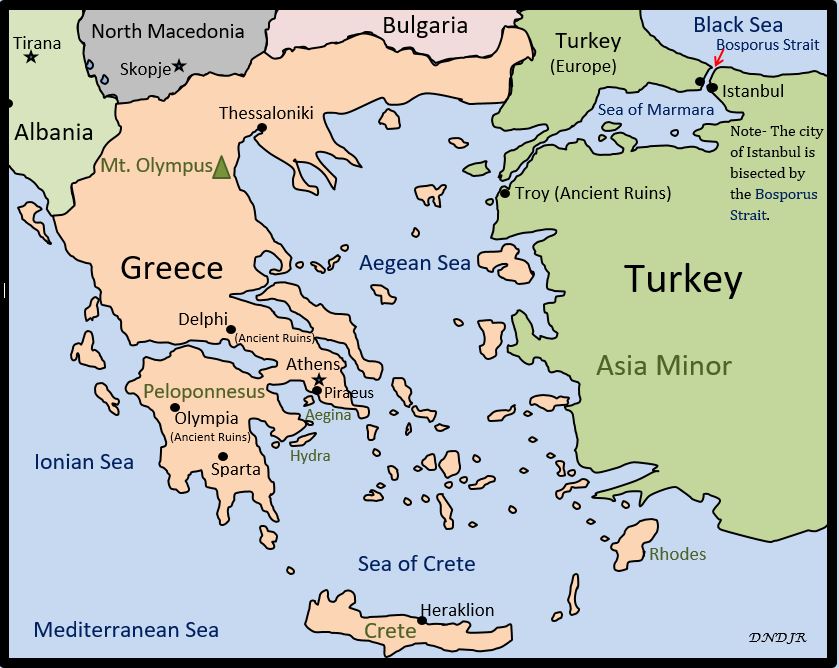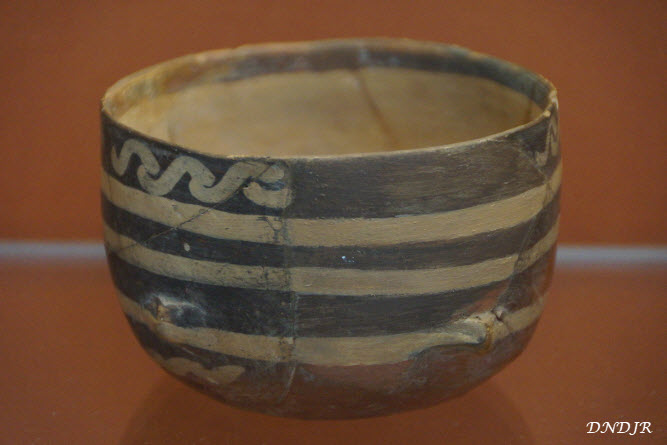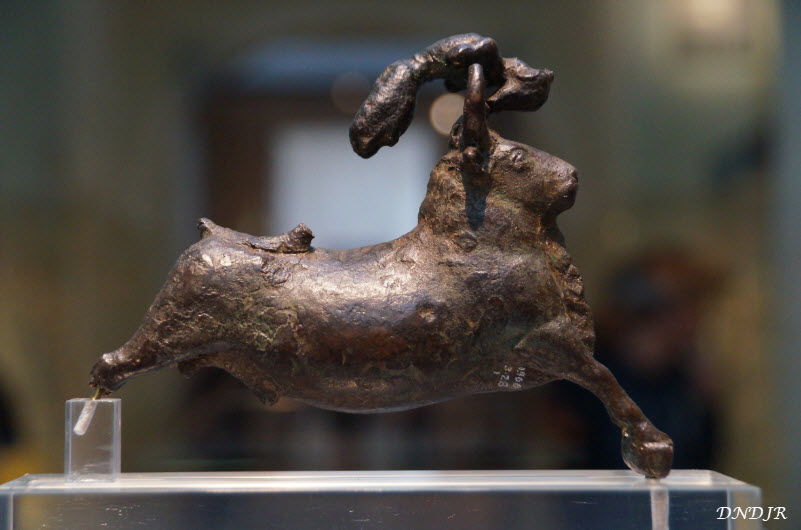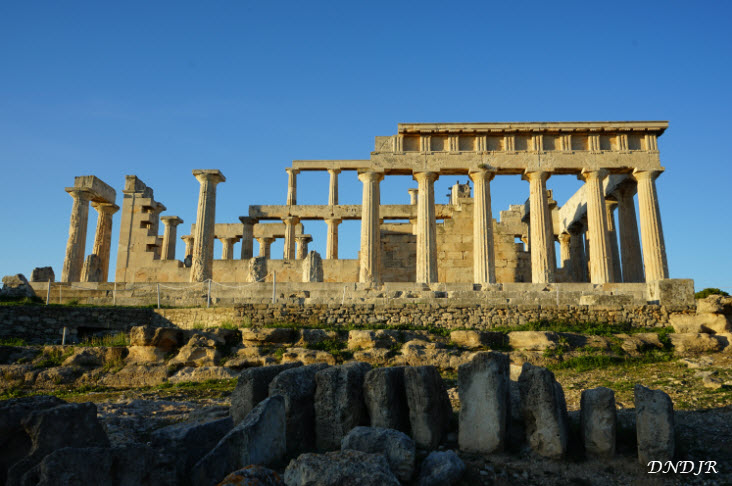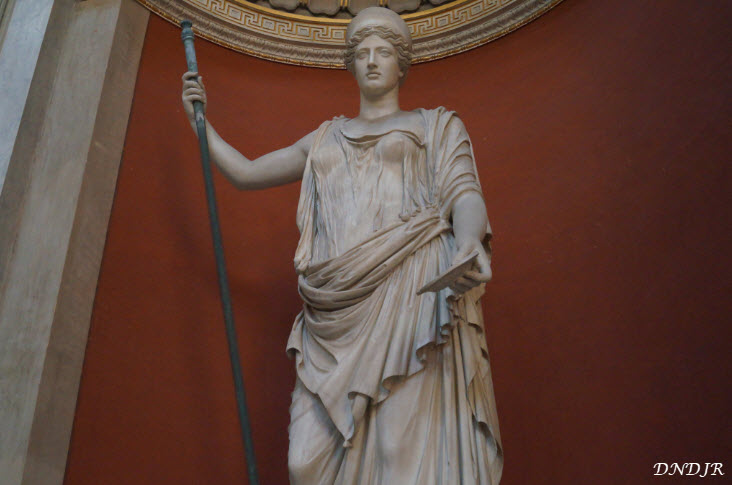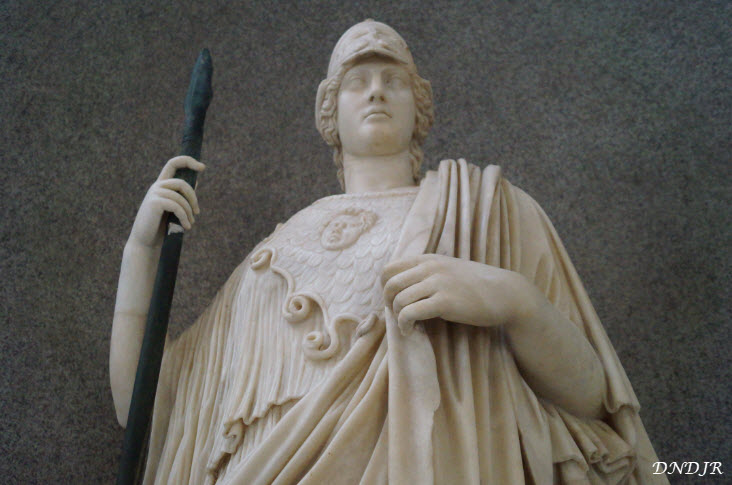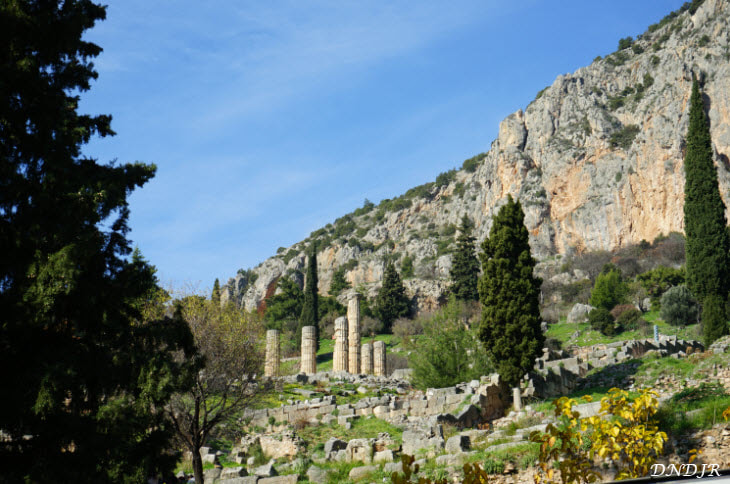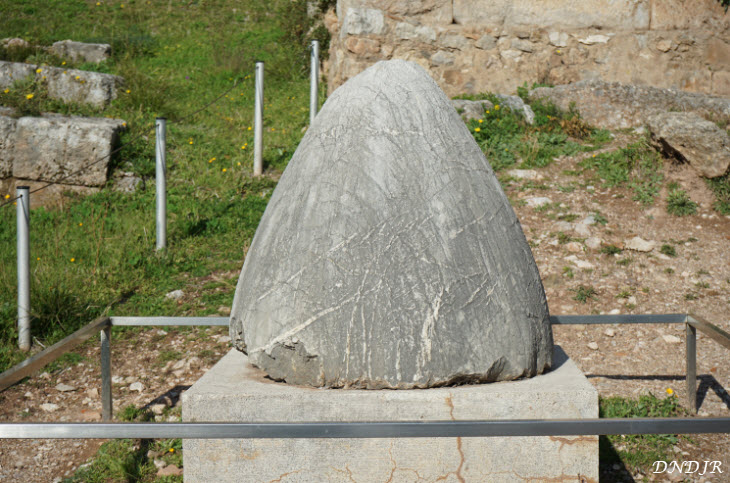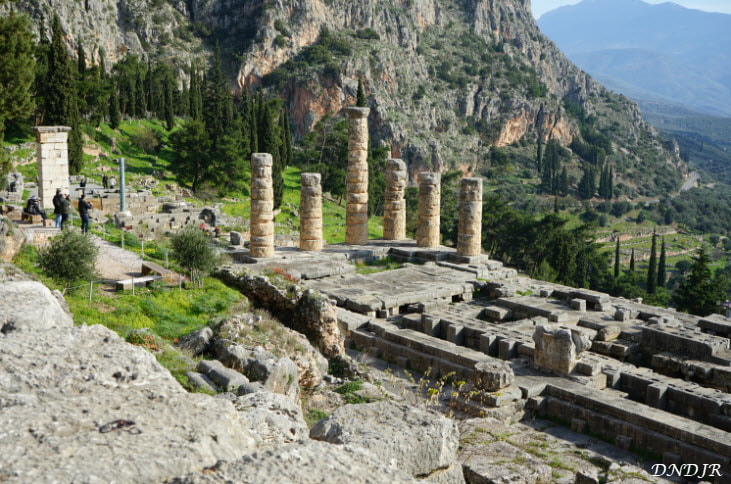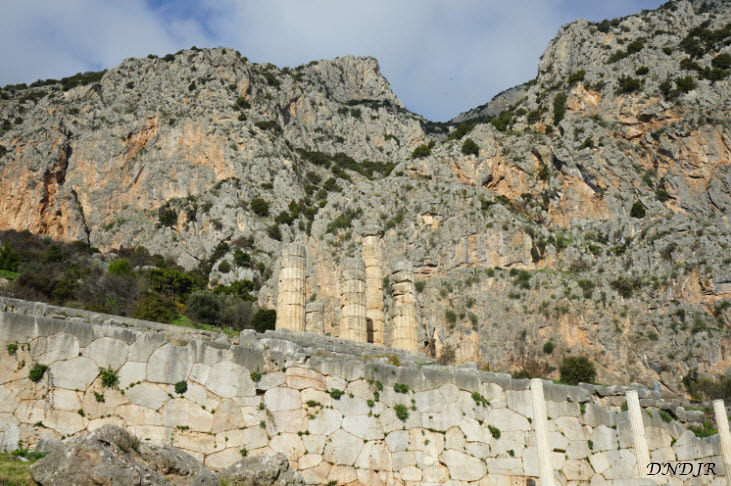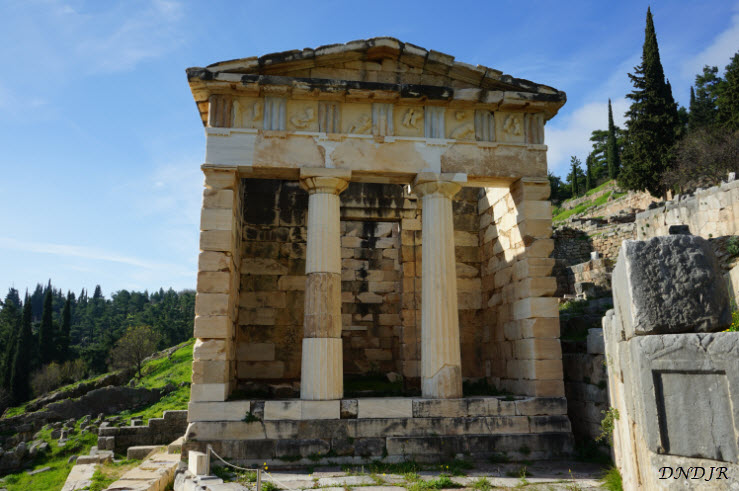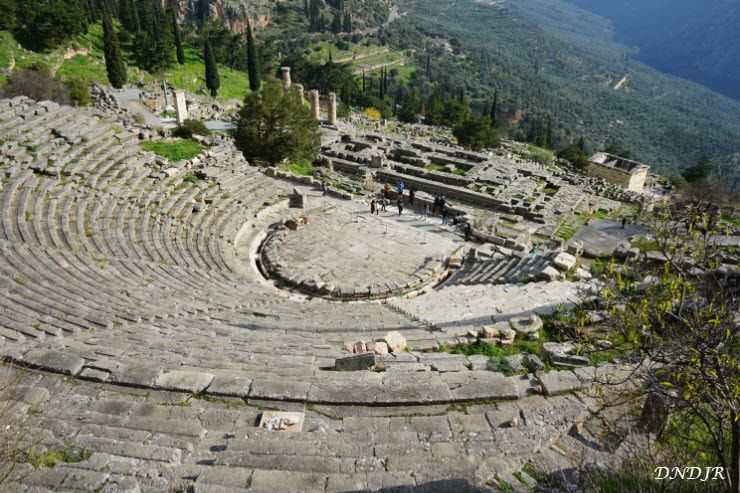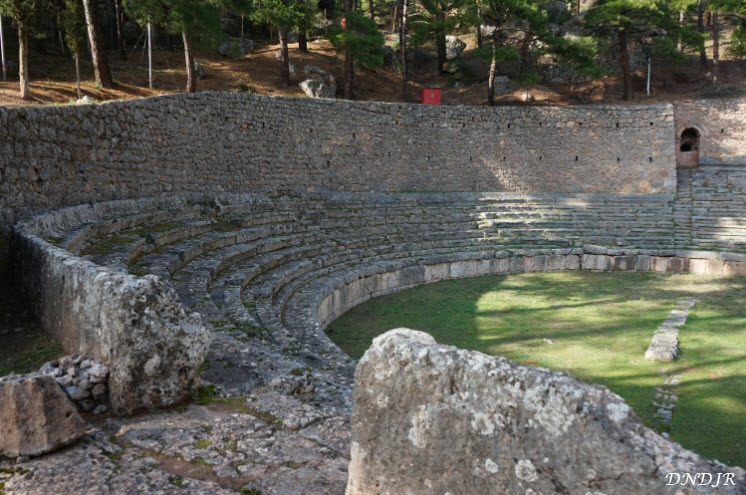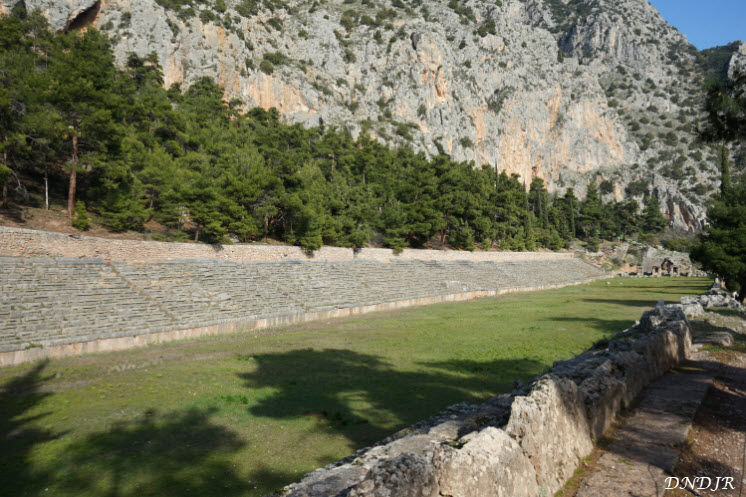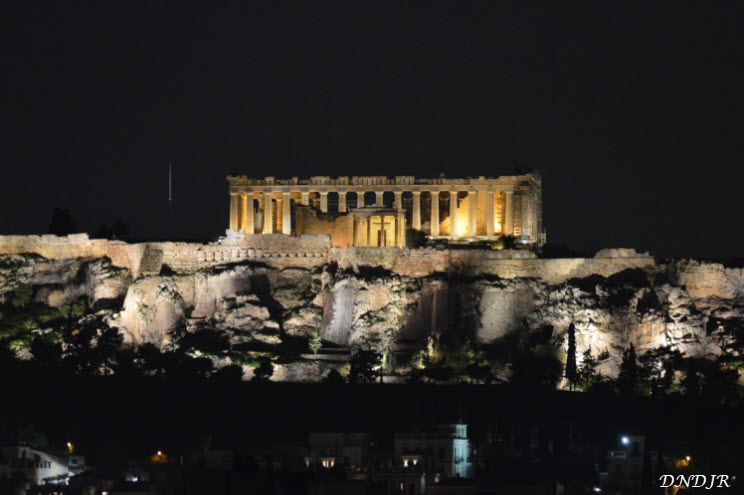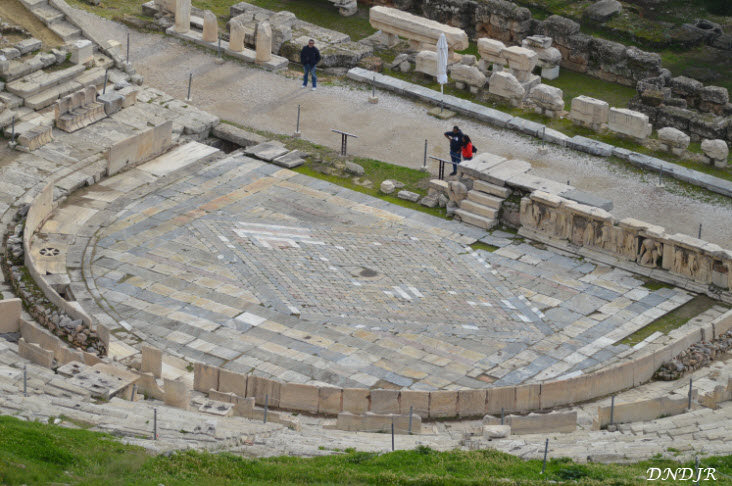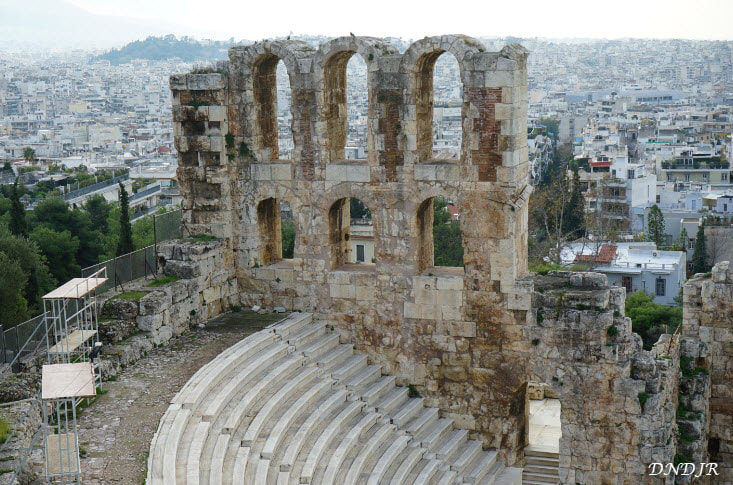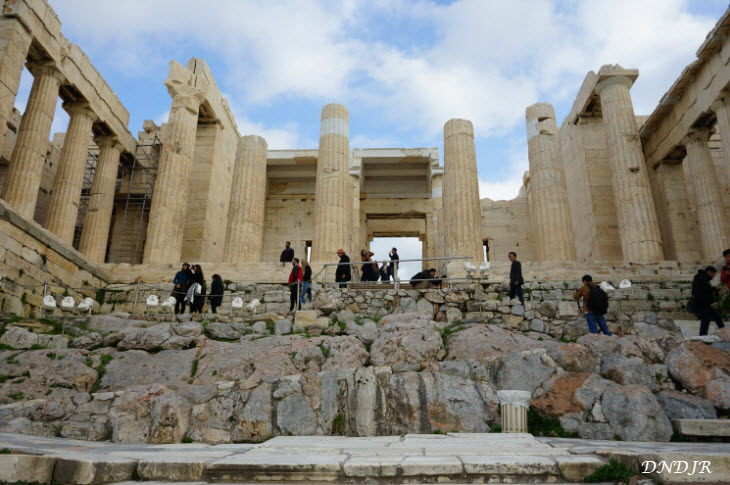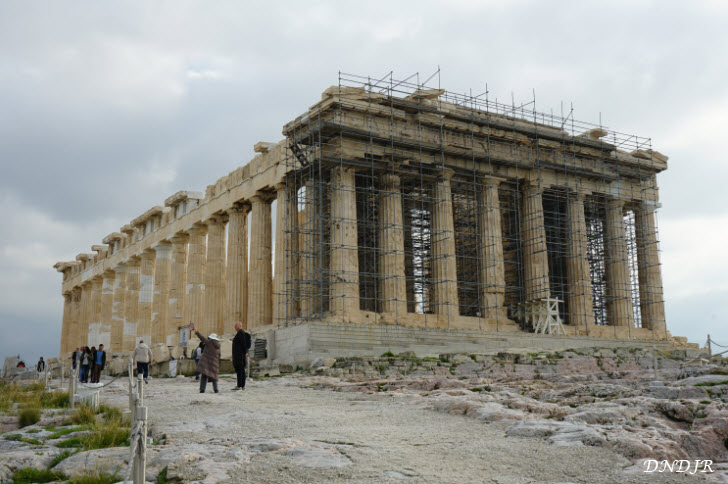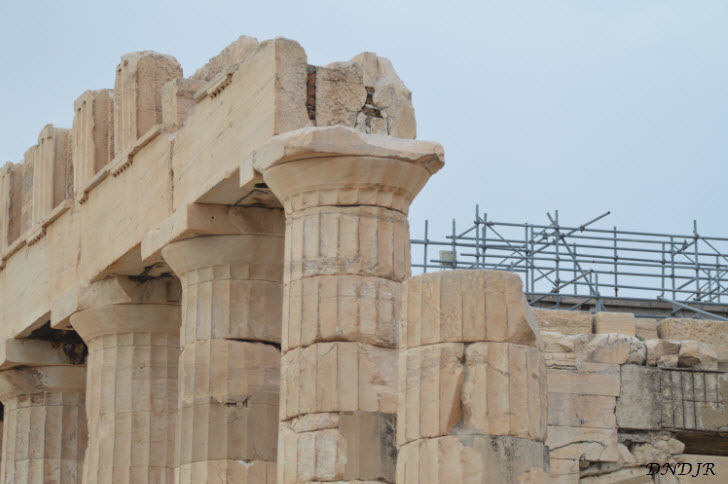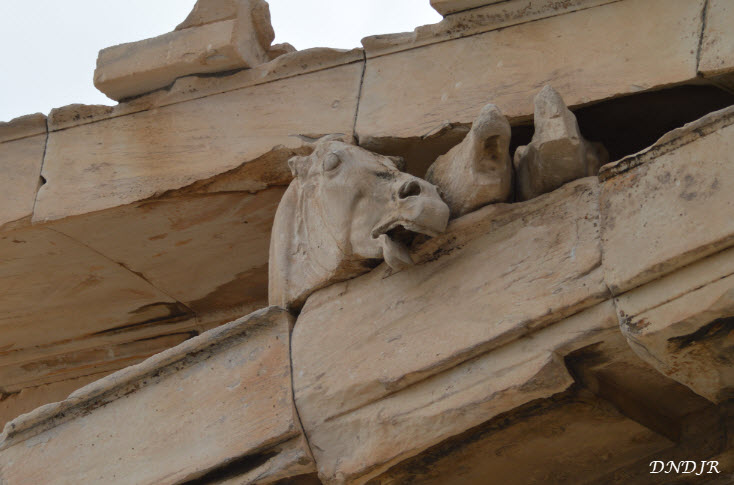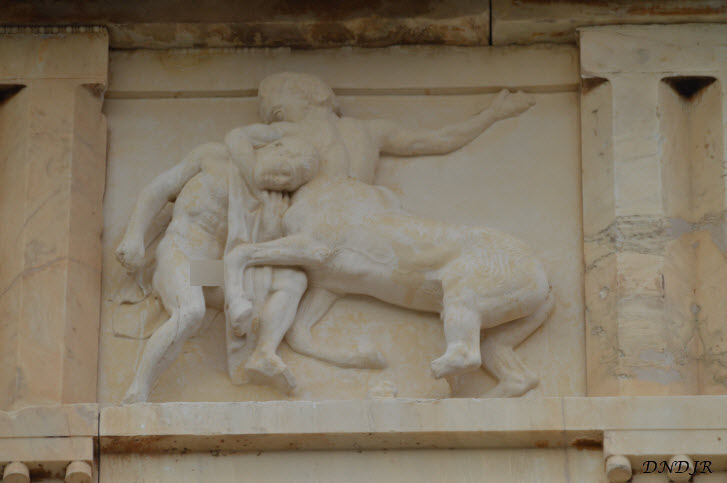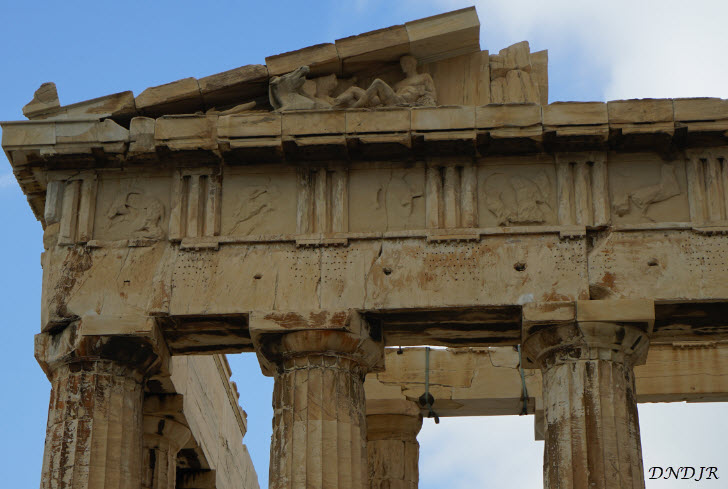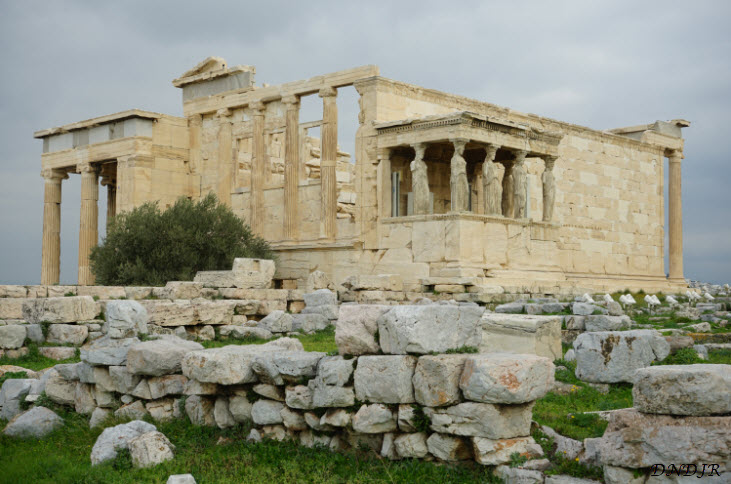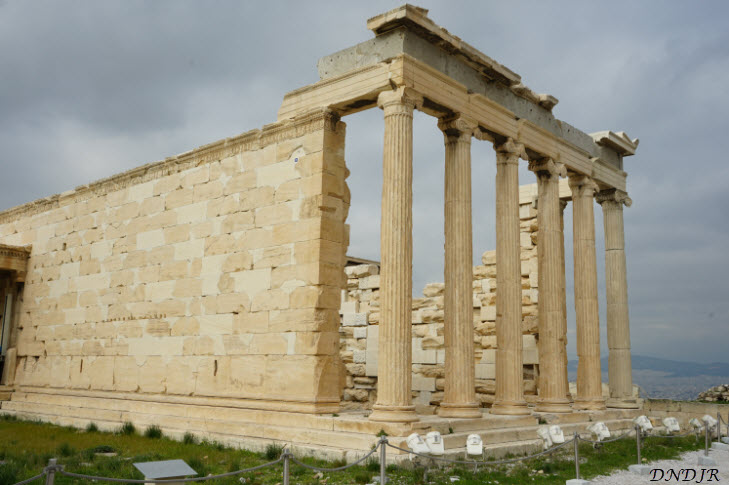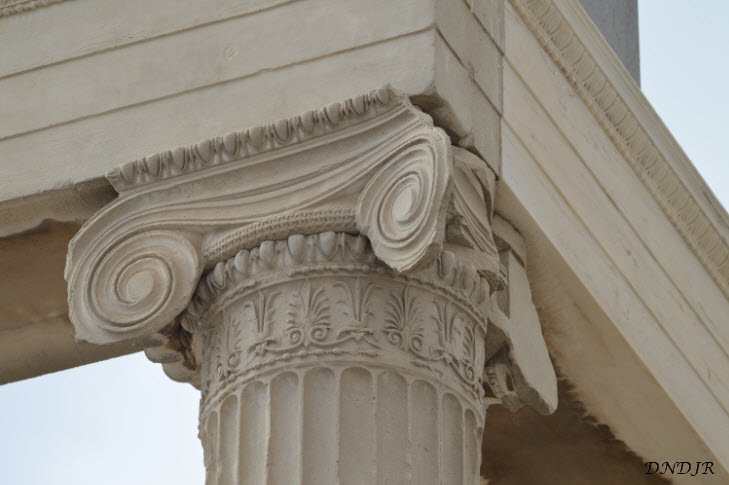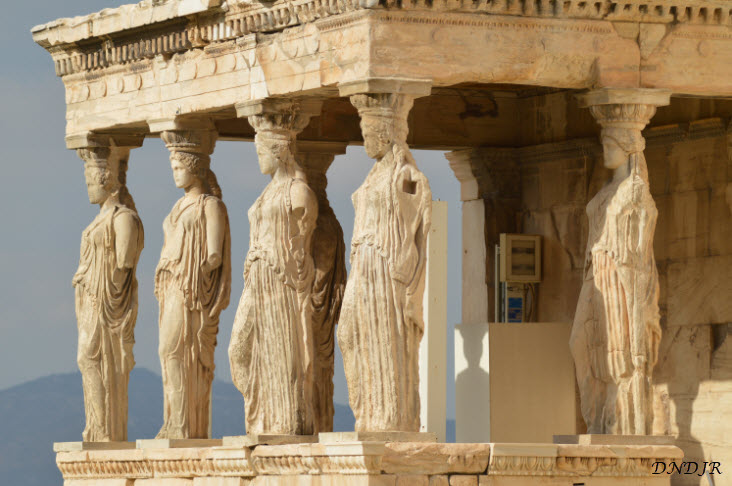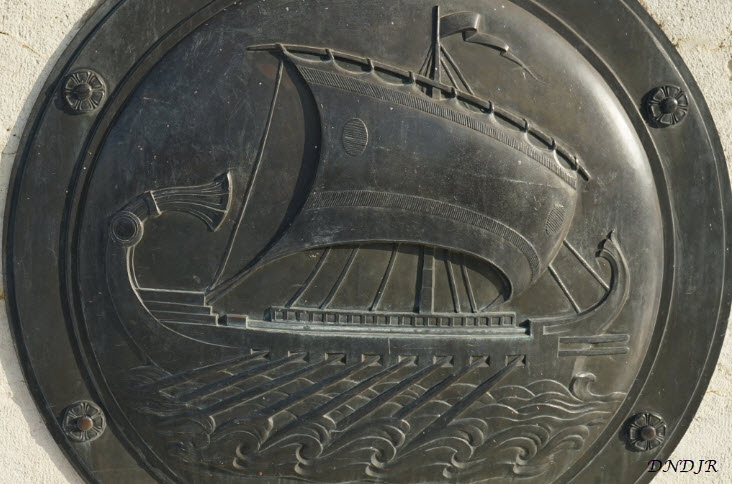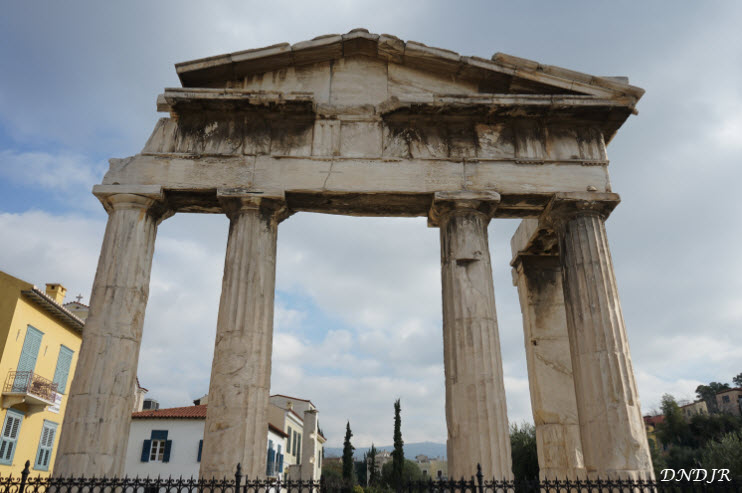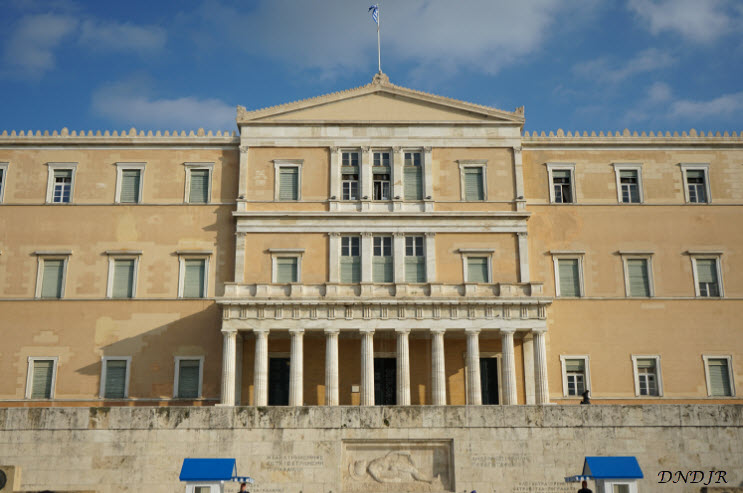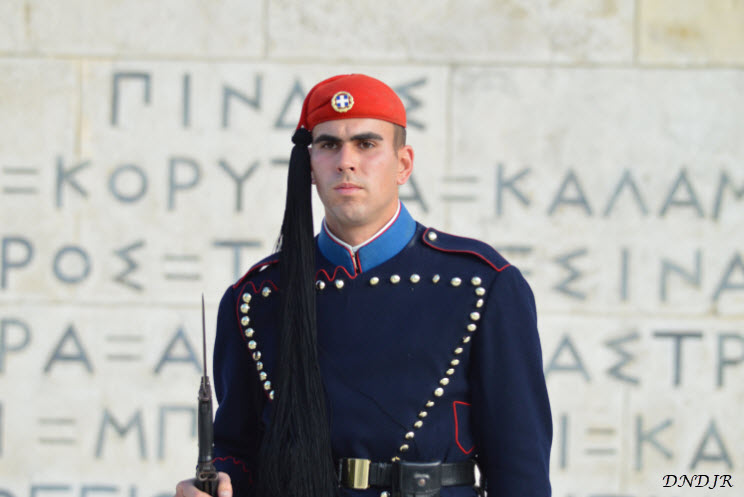Introduction
Greece is one of the most popular countries that borders the Mediterranean Sea. People all over the world appreciate the natural beauty of the country and the history of the Greek people. The long coastline of Greece has resulted in a Greek culture that developed an appreciation for coastal living and sailing. The Mediterranean climate was perfect for the growing of grapes, olives, fruit, and a variety of grains. The hills and mountains also provided pastures for sheep. Combined with an abundance of food from the sea, the Greeks survived on a diet that was common among the other civilizations that developed around the Mediterranean Sea coast. Additionally, as with most ancient societies, the ancient Greeks contributed to the history of the human race in ways that we can recognize today. Democracy, a form of government that popular around, originated in Greece. The word itself comes from the Greek word demos meaning "people." Other words such as marathon, narcissism, and phobia also have their roots in the Greek language. Greece is also the known as the birthplace of philosophy. Socrates, Plato, and Aristotle were all Greeks who made a lasting impact on philosophy and education in general. This page focuses on these topics and more and is designed to provide a brief history and understanding of Greece. Enjoy!
The Geography of Greece
|
The country of Greece is dominated by three major parts- the Peloponnesus Peninsula, the Greek mainland at the south end of the Balkan Peninsula, and islands that dot the seas around the country. These seas include the Aegean Sea, the Crete Sea, and the Ionian Sea. The Aegean Sea provides access for vessels sailing to the Black Sea. The highest point in the country, Mt. Olympus, rises to 2,917 meters above sea level. It is famous in Greek mythology as site of the throne of Zues. The largest islands of Greece, in order of size, are Crete, Euboea, Lésbos, and Rhodes.
|
A Brief History of Greece
The Minoans
Much of our knowledge of the earliest Greeks can be traced back to the island of Crete and the Cyclades Islands. Around 2,500 B.C., during the Bronze Age, a society developed that we call the Minoans. The name of the civilization is derived from Minos, the name of a leader that was handed down in Minoan myths. Archaeological excavations at Knossos, Akrotiri, and other locations have revealed a thriving society that traded with other civilizations around the Mediterranean Sea. They developed a written language and were known for their artistic works. Minoan artifacts from various locations provided ornate sculptures, colorful frescoes, and beautiful pottery. A well-known subject of frescoes and sculptures from the period reflects a sport called bull-leaping. This early form of bull fighting involved a bull fighter leaping over a charging bull.
Much of our knowledge of the earliest Greeks can be traced back to the island of Crete and the Cyclades Islands. Around 2,500 B.C., during the Bronze Age, a society developed that we call the Minoans. The name of the civilization is derived from Minos, the name of a leader that was handed down in Minoan myths. Archaeological excavations at Knossos, Akrotiri, and other locations have revealed a thriving society that traded with other civilizations around the Mediterranean Sea. They developed a written language and were known for their artistic works. Minoan artifacts from various locations provided ornate sculptures, colorful frescoes, and beautiful pottery. A well-known subject of frescoes and sculptures from the period reflects a sport called bull-leaping. This early form of bull fighting involved a bull fighter leaping over a charging bull.
The Rise of Mycenae
While Minoan society was reaching its peak, Bronze Age city-states began to form on the Peloponnesus and Greek mainland. Around 1600 B.C., the city-state of Mycenae became powerful by having a strong navy. Over time, Mycenae replaced the Minoans as the dominant power in the region. They continued to rule the region until their downfall in circa 1000 B.C.
During the time that Mycenae ruled Greece a legendary war occurred between the Greeks and the people of Troy. Historians do not know exactly when the Trojan War occurred. In fact, nobody has been able to positively prove where Troy is located. It is thought to be located along the Aegean coast, near the entrance to the Dardanelles Strait, in northwestern Turkey.
But why do we know so little about the Trojan War? Because ancient Greece had a strong oral tradition whereby they handed down stories from generation to generation over hundreds of years.
Knowledge of the Trojan War comes to us by way of a Greek poet named Homer. He is thought to have taken the stories and written them down in the form of epic poems. These poems, The Iliad and The Odyssey, allowed for the story of the Trojan War to become a permanent part of the Greek culture. The Trojan War is described as having begun when the King of Sparta's wife (Helen) ran away with the Trojan king's son (Paris). The Greeks, led by their commander Agamemnon, then attacked Troy. The war was fought to a stalemate and appeared to end after ten years. But then the Greeks came up with a brilliant idea! They constructed a giant wooden horse that was supposedly dedicated to Athena (the goddess of war) and then pretended to withdraw from Troy. The people of Troy, thinking that they had won, rejoiced and wheeled the horse into the city. What they didn't know was that there was a raiding party hiding inside the horse. They simply waited until the city had gone to sleep and then the raiders came out. They quickly opened the gates of the city to let in their fellow Greeks and proceeded to destroy the city from within. The men of Troy were killed while the women and children were taken into slavery.
The Odyssey focuses on the heroic character Odysseus and his ten-year struggle to return to his home in Ithaca. It uses a series of flashbacks to tell about earlier events while focusing on encounters with supernatural creatures who are supported by different Greek gods.
While Minoan society was reaching its peak, Bronze Age city-states began to form on the Peloponnesus and Greek mainland. Around 1600 B.C., the city-state of Mycenae became powerful by having a strong navy. Over time, Mycenae replaced the Minoans as the dominant power in the region. They continued to rule the region until their downfall in circa 1000 B.C.
During the time that Mycenae ruled Greece a legendary war occurred between the Greeks and the people of Troy. Historians do not know exactly when the Trojan War occurred. In fact, nobody has been able to positively prove where Troy is located. It is thought to be located along the Aegean coast, near the entrance to the Dardanelles Strait, in northwestern Turkey.
But why do we know so little about the Trojan War? Because ancient Greece had a strong oral tradition whereby they handed down stories from generation to generation over hundreds of years.
Knowledge of the Trojan War comes to us by way of a Greek poet named Homer. He is thought to have taken the stories and written them down in the form of epic poems. These poems, The Iliad and The Odyssey, allowed for the story of the Trojan War to become a permanent part of the Greek culture. The Trojan War is described as having begun when the King of Sparta's wife (Helen) ran away with the Trojan king's son (Paris). The Greeks, led by their commander Agamemnon, then attacked Troy. The war was fought to a stalemate and appeared to end after ten years. But then the Greeks came up with a brilliant idea! They constructed a giant wooden horse that was supposedly dedicated to Athena (the goddess of war) and then pretended to withdraw from Troy. The people of Troy, thinking that they had won, rejoiced and wheeled the horse into the city. What they didn't know was that there was a raiding party hiding inside the horse. They simply waited until the city had gone to sleep and then the raiders came out. They quickly opened the gates of the city to let in their fellow Greeks and proceeded to destroy the city from within. The men of Troy were killed while the women and children were taken into slavery.
The Odyssey focuses on the heroic character Odysseus and his ten-year struggle to return to his home in Ithaca. It uses a series of flashbacks to tell about earlier events while focusing on encounters with supernatural creatures who are supported by different Greek gods.
The Gods and Goddesses of Ancient Greece
|
Like many of the ancient civilizations that came before them, the Greeks developed myths that helped them to explain events in nature and the history of humans. These myths usually involved gods or superhuman characters who were immortal and sometimes interacted with the people of Greece. Cities, towns, and even different professions around the Greek world usually worshiped one or more gods. The gods were believed to be able to help protect them from natural disasters and from other gods. Interestingly though, the gods and goddesses suffered from the same faults and weaknesses as humans. The following information provides a brief overview of the major gods and goddesses in Ancient Greece. Zeus - Zeus was the main god in the Greek hierarchy of gods and goddesses. He was known as the god of the sky and weather. In fact, he is closely associated the use of lightning bolts. He was thought to rule from Mt. Olympus in northern Greece. Hera - Hera was the wife of Zeus and the queen of the gods. She is the best known as the goddess of marriage and women. Ares - Ares was the son of Zeus and Hera and was known as the god of war. Athena - Athena was known as the goddess of wisdom and war. Apollo - Apollo was a son of Zeus and he was known as the god of harmony, knowledge, sun, and patron god of herdsmen. Poseidon - Poseidon was a brother of Zeus and Hades. He was known as the god the sea. Aphrodite - Aphrodite was known as the goddess of love and beauty. Eris - Eris was known as the goddess of strife and discord. Hermes - Hermes was a son of Zeus. He is best known as the messenger of the gods and the god of good luck. Hades - Hades was a brother of Zeus and Poseidon. He was known as the god of the underworld. |
The Sanctuary of Apollo In Delphi
Located on the southern slope of Mt. Parnassus lies the ruins of the Sanctuary of Apollo. The first religious structures at Delphi were built by the Mycenaean people perhaps as early as 1500 BC. Famous Greek myths helped to make Delphi known across the Greek world. It is the location where it is said that Zeus released two eagles. One flew around the world to the east while the other traveled west around the world. The point where the two eagles met, at Delphi, was thus said to be the center of the world. Delphi was from then on known as the Omphalos (navel) of the world.
Myths also describe how Apollo defeated Mother Earth's serpent child, Python, at Delphi. This paved the way for creation of the Temple of Apollo and the Pythian Games. These games were held every four years to celebrate's Apollo's victory over Python.
Located on the southern slope of Mt. Parnassus lies the ruins of the Sanctuary of Apollo. The first religious structures at Delphi were built by the Mycenaean people perhaps as early as 1500 BC. Famous Greek myths helped to make Delphi known across the Greek world. It is the location where it is said that Zeus released two eagles. One flew around the world to the east while the other traveled west around the world. The point where the two eagles met, at Delphi, was thus said to be the center of the world. Delphi was from then on known as the Omphalos (navel) of the world.
Myths also describe how Apollo defeated Mother Earth's serpent child, Python, at Delphi. This paved the way for creation of the Temple of Apollo and the Pythian Games. These games were held every four years to celebrate's Apollo's victory over Python.
The ancient temple complex grew over time and around 700 BC a temple was built and dedicated to Apollo. A priestess, referred to as a Pythia, had an important role at the Temple of Apollo. She was the oracle who would make predictions about the future. Common people, aristocrats, and leaders from across the Greek world would sometimes go to Delphi before making major decisions. Unfortunately, these predictions were usually vague! The ambiguous predictions were left to the listener to determine the ultimate outcome.
The Olympic Games
The ancient Greeks enjoyed competing with each other in sporting competitions. Over time, the sports competitions became major events for the Greek people and large competitions became part of their culture.
The first historical account involving the Olympic Games dates back to the year 776 B.C. in Olympia. A man named Coroebus of Elis, a cook, is said to have won a sprinting competition. Over subsequent years the competition grew larger and began to be held every four years. More events were added and the competitions expanded to include athletes from across Greece and outlying Greek colonies. During the Olympics truces were called in wars and athletes could travel safely to the competitions.
While many people know that the Olympic Games originated with ancient Greece, few people know that the games were associated with ancient Greek religious beliefs. The competitions held in Olympia were held in honor of Zeus. Ceremonies took place at the Temple of Zeus, a grand structure with a giant statue of Zeus. Athletes and other Greeks participated in ceremonies that involved the burning of animal sacrifices as a form of worship. Unfortunately, only ruins survive from the ancient temple.
Major events included discus and javelin throwing, wrestling, boxing, running, long jump, and the pentathlon. Horse and chariot races were also popular events and were held at stadiums called hippodromes. Winners of Olympic events competed for glory and were awarded wreaths when they won events. Successful athletes returned to their home cities and towns and were celebrated as heroes.
In addition to sporting events and religious ceremonies, there were also performances by actors and musicians.
The Olympic Games at Olympia were not the only major competitions held in Greece. In fact, three other places held major competitions that were dedicated to different gods. The Pythian Games, described earlier, were held at Delphi in honor of Apollo. The Isthmian Games, held at Corinth, were dedicated to the god Poseidon. And finally, the Nemean Games, held in Nemea, were dedicated to Zeus. Some of these lesser known games were held every two years.
The Olympic Games continued to be a major part of the Greek culture until Greece was conquered by the Roman Empire. The Roman Emperor Theodosius I stopped the Olympic Games in 393 A.D. because of their close connection with pagan gods and beliefs.
The Olympic Games were not revived until 1896 when the Olympic Games were again held in Athens. Since that time, the games have been held every four years, except during a few short periods of war.
Several new traditions have been incorporated since the new Olympic Games began in 1896. Perhaps the biggest change is that women can now compete in the Olympics. This is a major change when you consider that original Olympics were strictly a men's competition. Another change is that the Olympics are now held in a different countries around the world, not just Greece. New sports have also been added. The marathon, a race of 26.2 miles, celebrates a major event in Greek history (more on this later). It was never an event in the ancient games, but is now one of the most popular events at the Olympics. In 1928 the Olympic torch relay became a new tradition. The relay always begins in Greece where runners carry the torch the country. Eventually, it is transported to the country where the Olympic Games are being held. There, it is carried around the country by runners before it arrives at the beginning of the Olympic Games. Lastly, in 1924, the Winter Olympics were added to the Olympic schedule. The Winter Olympics focus on winter sports and are also held every four years.
The ancient Greeks enjoyed competing with each other in sporting competitions. Over time, the sports competitions became major events for the Greek people and large competitions became part of their culture.
The first historical account involving the Olympic Games dates back to the year 776 B.C. in Olympia. A man named Coroebus of Elis, a cook, is said to have won a sprinting competition. Over subsequent years the competition grew larger and began to be held every four years. More events were added and the competitions expanded to include athletes from across Greece and outlying Greek colonies. During the Olympics truces were called in wars and athletes could travel safely to the competitions.
While many people know that the Olympic Games originated with ancient Greece, few people know that the games were associated with ancient Greek religious beliefs. The competitions held in Olympia were held in honor of Zeus. Ceremonies took place at the Temple of Zeus, a grand structure with a giant statue of Zeus. Athletes and other Greeks participated in ceremonies that involved the burning of animal sacrifices as a form of worship. Unfortunately, only ruins survive from the ancient temple.
Major events included discus and javelin throwing, wrestling, boxing, running, long jump, and the pentathlon. Horse and chariot races were also popular events and were held at stadiums called hippodromes. Winners of Olympic events competed for glory and were awarded wreaths when they won events. Successful athletes returned to their home cities and towns and were celebrated as heroes.
In addition to sporting events and religious ceremonies, there were also performances by actors and musicians.
The Olympic Games at Olympia were not the only major competitions held in Greece. In fact, three other places held major competitions that were dedicated to different gods. The Pythian Games, described earlier, were held at Delphi in honor of Apollo. The Isthmian Games, held at Corinth, were dedicated to the god Poseidon. And finally, the Nemean Games, held in Nemea, were dedicated to Zeus. Some of these lesser known games were held every two years.
The Olympic Games continued to be a major part of the Greek culture until Greece was conquered by the Roman Empire. The Roman Emperor Theodosius I stopped the Olympic Games in 393 A.D. because of their close connection with pagan gods and beliefs.
The Olympic Games were not revived until 1896 when the Olympic Games were again held in Athens. Since that time, the games have been held every four years, except during a few short periods of war.
Several new traditions have been incorporated since the new Olympic Games began in 1896. Perhaps the biggest change is that women can now compete in the Olympics. This is a major change when you consider that original Olympics were strictly a men's competition. Another change is that the Olympics are now held in a different countries around the world, not just Greece. New sports have also been added. The marathon, a race of 26.2 miles, celebrates a major event in Greek history (more on this later). It was never an event in the ancient games, but is now one of the most popular events at the Olympics. In 1928 the Olympic torch relay became a new tradition. The relay always begins in Greece where runners carry the torch the country. Eventually, it is transported to the country where the Olympic Games are being held. There, it is carried around the country by runners before it arrives at the beginning of the Olympic Games. Lastly, in 1924, the Winter Olympics were added to the Olympic schedule. The Winter Olympics focus on winter sports and are also held every four years.
City-States in Ancient Greece
City-states, independent nations that were comprised of a city and surrounding territory, gradually began to form in early Greece. Each developed their own government structures and laws. Two city-states became very powerful - Athens and Sparta. But it is important to keep in mind that there were many city-states across the Greek world.
City-states, independent nations that were comprised of a city and surrounding territory, gradually began to form in early Greece. Each developed their own government structures and laws. Two city-states became very powerful - Athens and Sparta. But it is important to keep in mind that there were many city-states across the Greek world.
City-State of Sparta
Sparta developed into a very different city-state from Athens. Situated in a valley away from the sea, Sparta was surrounded by mountains and they rarely bothered to build high defensive walls. They also had a different set of values and customs that made military strength a priority. In fact, few examples of artistic works have been discovered by archaeological evidence.
The focus on military strength made life different for the people of Sparta. Boys entered military training starting at the age of seven. They remained in the military schools until they became soldiers and part of the army. With Spartan men so busy with military duties, Spartan women had a more active role than women in Athens. This worked to their benefit in many ways. Spartan women were allowed to own property, manage the household affairs, and are thought to have spent a lot of time together. They also engaged in a variety of sports. The active roles of men and women meant that slaves, referred to as helots, bore the brunt of the day-to-day work in society.
Sparta developed into a very different city-state from Athens. Situated in a valley away from the sea, Sparta was surrounded by mountains and they rarely bothered to build high defensive walls. They also had a different set of values and customs that made military strength a priority. In fact, few examples of artistic works have been discovered by archaeological evidence.
The focus on military strength made life different for the people of Sparta. Boys entered military training starting at the age of seven. They remained in the military schools until they became soldiers and part of the army. With Spartan men so busy with military duties, Spartan women had a more active role than women in Athens. This worked to their benefit in many ways. Spartan women were allowed to own property, manage the household affairs, and are thought to have spent a lot of time together. They also engaged in a variety of sports. The active roles of men and women meant that slaves, referred to as helots, bore the brunt of the day-to-day work in society.
The City-State of Athens
Athens was the most well-known of all Greek city-states. It grew as a major power on the Greek mainland about 10 kilometers north of the Saronic Gulf (part of the Aegean Sea). The Athenians looked to the goddess Athena to be their protector.
Like all societies, government structures developed over time. Government rule was sometimes composed of kings, sometimes by members of the aristocracy, sometimes by strong oligarchs, and even by tyrants. But in 507 BC the Athenians supported a man named Cleisthenes to take power. He was different than past leaders and under him a new form of government began to take shape - democracy. This was monumental change in the way people thought about how government should operate! But, keep in mind that democracy took shape over a long period of time and it did not look like democracy that is popular in the world today. Central to the concept of democracy was the idea of citizenship. To be a citizen meant that a person could take full advantage of what the city-state had to offer, including the right to participate in the democratic process. As was the case in Egypt, Athenians owned slaves. Slaves were not considered citizens and neither were people who came from other city-states.
The Assembly was the center of democratic government in Athens. Originally, all citizens could participate in the affairs of the Assembly. But as you can imagine, the Assembly could not operate with every voice being heard. So, eventually a council was created that was composed of 500 citizens. These men were chosen by lot to serve their year-long term in the Assembly. This allowed for more people to participate in governing and helped to prevent any one man from gaining too much power in the affairs of the city-state.
With citizenship though, came responsibility. Every male Athenian was expected to participate in government and be jury members when necessary. They were also expected to be part of the army and to defend Athens from invaders.
Athens was the most well-known of all Greek city-states. It grew as a major power on the Greek mainland about 10 kilometers north of the Saronic Gulf (part of the Aegean Sea). The Athenians looked to the goddess Athena to be their protector.
Like all societies, government structures developed over time. Government rule was sometimes composed of kings, sometimes by members of the aristocracy, sometimes by strong oligarchs, and even by tyrants. But in 507 BC the Athenians supported a man named Cleisthenes to take power. He was different than past leaders and under him a new form of government began to take shape - democracy. This was monumental change in the way people thought about how government should operate! But, keep in mind that democracy took shape over a long period of time and it did not look like democracy that is popular in the world today. Central to the concept of democracy was the idea of citizenship. To be a citizen meant that a person could take full advantage of what the city-state had to offer, including the right to participate in the democratic process. As was the case in Egypt, Athenians owned slaves. Slaves were not considered citizens and neither were people who came from other city-states.
The Assembly was the center of democratic government in Athens. Originally, all citizens could participate in the affairs of the Assembly. But as you can imagine, the Assembly could not operate with every voice being heard. So, eventually a council was created that was composed of 500 citizens. These men were chosen by lot to serve their year-long term in the Assembly. This allowed for more people to participate in governing and helped to prevent any one man from gaining too much power in the affairs of the city-state.
With citizenship though, came responsibility. Every male Athenian was expected to participate in government and be jury members when necessary. They were also expected to be part of the army and to defend Athens from invaders.
The Persian Invasion of 490 BC
While Sparta and Athens were becoming powerful city-states in Greece, the Persian Empire was making its presence felt to the east. Centered in modern-day Iran, the Persian Empire spread their power by conquering many of the people in their region. Eventually, in 490 BC, they arrived on the mainland of Greece. This outside threat encouraged Sparta and Athens to put aside their rivalry to confront the invading Persians. The first major confrontation on the mainland occurred at the town of Marathon on the coast north-east of Athens. The Athenian army was successful in repelling the Persians army. It is said that the commander of the Athenians sent a warrior named Pheidippides to take the news of the Athenian victory back to Athens. He ran the entire 25 mile distance, delivered the message, and then dropped from exhaustion. This legendary event gave rise to our current concept of the marathon race.
While Sparta and Athens were becoming powerful city-states in Greece, the Persian Empire was making its presence felt to the east. Centered in modern-day Iran, the Persian Empire spread their power by conquering many of the people in their region. Eventually, in 490 BC, they arrived on the mainland of Greece. This outside threat encouraged Sparta and Athens to put aside their rivalry to confront the invading Persians. The first major confrontation on the mainland occurred at the town of Marathon on the coast north-east of Athens. The Athenian army was successful in repelling the Persians army. It is said that the commander of the Athenians sent a warrior named Pheidippides to take the news of the Athenian victory back to Athens. He ran the entire 25 mile distance, delivered the message, and then dropped from exhaustion. This legendary event gave rise to our current concept of the marathon race.
The Golden Age of Athens
The end of the Persian threat to Greece ushered in a period that has become known as the Golden Age of Athens. With less focus on defending itself, Athens was able to devote its time and treasure to developing knowledge and cultural pursuits.
The end of the Persian threat to Greece ushered in a period that has become known as the Golden Age of Athens. With less focus on defending itself, Athens was able to devote its time and treasure to developing knowledge and cultural pursuits.
|
The Acropolis in Athens
An acropolis is a fortification that was built on the highest point in some Greek cities. But an acropolis is sometimes more than just a fortress, it can also be a place where temples and religious monuments are located. Undoubtedly, the most famous acropolis is located in central Athens. Historians believe that the Acropolis has been used as a fortress since the time of Mycenaean rule. The first fortress wall dates to approximately 1200 BC. Rising approximately 156 meters above the city, the Athens Acropolis has steep sides on three sides. Entrance is to the fortress is gained via the west side of the hill. The physical geography of the Acropolis made it a particularly effective fortification. |
The Parthenon
One of the best known buildings in the world sits atop the Acropolis in Athens- the Parthenon. Construction of the Parthenon was completed in 432 BC. It was a magnificent temple dedicated to the goddess Athena. The original temple housed a large and ornate statue of Athena that is said to have been made of gold and ivory. The Parthenon was built using the Doric order of architecture.
One of the best known buildings in the world sits atop the Acropolis in Athens- the Parthenon. Construction of the Parthenon was completed in 432 BC. It was a magnificent temple dedicated to the goddess Athena. The original temple housed a large and ornate statue of Athena that is said to have been made of gold and ivory. The Parthenon was built using the Doric order of architecture.
The Erechtheion
The Erechtheion is a building that contained several temples and was constructed on the north side of the Acropolis between 421 and 406 BC. The name is thought to have been derived from a mythical king of Athens named Erechtheus. The building was constructed on uneven ground and there is a three meter difference between the east and west sides. But it is the porch on the west side that is perhaps the most interesting. It was constructed using six maiden figures to support the porch roof. Replicas have replaced the originals maidens in order to preserve them. The stones inside the north entrance are said to have marks made by Poseidon's trident. Legend has it that when the trident struck the ground it produced salt water for the god of the sea. The rest of the building has several temples dedicated to a variety of gods and men.
The Erechtheion is a building that contained several temples and was constructed on the north side of the Acropolis between 421 and 406 BC. The name is thought to have been derived from a mythical king of Athens named Erechtheus. The building was constructed on uneven ground and there is a three meter difference between the east and west sides. But it is the porch on the west side that is perhaps the most interesting. It was constructed using six maiden figures to support the porch roof. Replicas have replaced the originals maidens in order to preserve them. The stones inside the north entrance are said to have marks made by Poseidon's trident. Legend has it that when the trident struck the ground it produced salt water for the god of the sea. The rest of the building has several temples dedicated to a variety of gods and men.
Greek Philosophers
The Golden Age of Athens began a period of thinking and a seeking among Athenians. Their quest for truth and knowledge allowed for discussions about the best form of government and a better understanding of the natural world. The three major philosophers of Greece are described below.
Socrates (470 BC to 399 BC) - Socrates grew up in the city-state of Athens. Although he never wrote books, he did create a teaching system that became known as the Socratic method. This system used a series of questions that were designed to lead the student to the ultimate answer. Unfortunately, some of the questions that he asked created enemies among the powerful men of Athens. He was eventually sentenced to death and forced to consume a poisonous drink made of hemlock. Socrates is sometimes referred to as the father of the western philosophy.
Plato (c. 428 BC - c. 348 BC) - Plato is thought to have been a student of Socrates. He is best known for believing that most problems could be solving using reason and creating a school of thinking and learning called The Academy. The Academy continued to operate until it was closed by during the rule of the Romans. Interestingly, he felt that wise men should run governments and that democracy was an inferior system.
Aristotle (384 BC - 322 BC) - Aristotle came from an area of north of Athens called Macedonia. He was Plato's student and wrote many books about a wide variety of subjects. He is known as the father of the modern university and for having been the tutor of Alexander the Great.
The Golden Age of Athens began a period of thinking and a seeking among Athenians. Their quest for truth and knowledge allowed for discussions about the best form of government and a better understanding of the natural world. The three major philosophers of Greece are described below.
Socrates (470 BC to 399 BC) - Socrates grew up in the city-state of Athens. Although he never wrote books, he did create a teaching system that became known as the Socratic method. This system used a series of questions that were designed to lead the student to the ultimate answer. Unfortunately, some of the questions that he asked created enemies among the powerful men of Athens. He was eventually sentenced to death and forced to consume a poisonous drink made of hemlock. Socrates is sometimes referred to as the father of the western philosophy.
Plato (c. 428 BC - c. 348 BC) - Plato is thought to have been a student of Socrates. He is best known for believing that most problems could be solving using reason and creating a school of thinking and learning called The Academy. The Academy continued to operate until it was closed by during the rule of the Romans. Interestingly, he felt that wise men should run governments and that democracy was an inferior system.
Aristotle (384 BC - 322 BC) - Aristotle came from an area of north of Athens called Macedonia. He was Plato's student and wrote many books about a wide variety of subjects. He is known as the father of the modern university and for having been the tutor of Alexander the Great.
|
The Peloponnesian War (431 BC - 404 BC)
The Peloponnesian War can best be described as war between the city-states of Athens and Sparta. But it also included all of the city-states that supported one side or the other. Athens led a group of city-states referred to as the Delian League. Sparta led another group of city-states against Athens. Sparta was known for their powerful army, while Athens was known for having a more powerful navy. Many of the battles were won by Sparta during the war. But it was an outbreak of the plague that killed thousands of Athenians that crippled Athens. In addition to killing many of its many warriors, it also killed their popular leader Pericles. Athens finally fell in 404 BC. |
But, in the end, all of the city-states suffered from the Peloponnesian War. It began a gradual decline of power that even Sparta could not sustain. The Greek city-state of Thebes eventually defeated the Spartans, only to be defeated by the Macedonians.
Alexander the Great
Alexander III was born in Macedonia, an area in northern Greece, in 356 BC. His father, Phillip II, was the king of Macedonia. He grew up with all of the advantages of being a prince and was even tutored by the famous philosopher Aristotle. But he suddenly became king when his father was assassinated in 336 BC. At the time, Phillip the II's army was engaged in battle with the Persians Empire in Asia Minor.
The death of Phillip II created turmoil in the Macedonian Empire. As was the case in many empires in history, people living under Macedonian rule used his death as an opportunity to rebel. This was the situation that Alexander faced when he took power. He immediately went on the offensive to defeat his foes and to suppress rebellious cities. Over time, his reputation grew as a military commander and his troops became his dedicated to his cause. His army moved east, defeating the Persians in battle after battle. He also took on the Persians in Egypt, defeated their army, and established the city of Alexandria. After Egypt he continued east. It took less than ten years to defeat the Persians and create a vast empire. Interestingly, Alexander attempted to gain the trust of the Persians by adopting some of their customs and clothing. This did not sit well with some of his men and they started to challenge Alexander. As a consequence, he had some of his generals executed.
In 327 BC he continued to move east and invaded India. Shortly thereafter, Alexander encountered King Porus of Paurava and his army. Although their army was smaller, they used tactics and elephants to stop the Greeks in several battles. The war-weary army then began to push back against Alexander and he was forced to return to Persia. Once there, he continued his efforts to bring the Greeks and the Persians together. One way was to make his army officers marry Persian princesses. Unfortunately for him though, he did not live long enough to rule his large empire. He died in Babylon (near the modern-day capital city of Baghdad, Iraq) in 323 BC. It is thought that he contracted malaria or was poisoned, but there is no conclusive proof to determine why he died. With Alexander's death, his empire was divided up between several prominent generals and it ceased to exist.
Alexander III was born in Macedonia, an area in northern Greece, in 356 BC. His father, Phillip II, was the king of Macedonia. He grew up with all of the advantages of being a prince and was even tutored by the famous philosopher Aristotle. But he suddenly became king when his father was assassinated in 336 BC. At the time, Phillip the II's army was engaged in battle with the Persians Empire in Asia Minor.
The death of Phillip II created turmoil in the Macedonian Empire. As was the case in many empires in history, people living under Macedonian rule used his death as an opportunity to rebel. This was the situation that Alexander faced when he took power. He immediately went on the offensive to defeat his foes and to suppress rebellious cities. Over time, his reputation grew as a military commander and his troops became his dedicated to his cause. His army moved east, defeating the Persians in battle after battle. He also took on the Persians in Egypt, defeated their army, and established the city of Alexandria. After Egypt he continued east. It took less than ten years to defeat the Persians and create a vast empire. Interestingly, Alexander attempted to gain the trust of the Persians by adopting some of their customs and clothing. This did not sit well with some of his men and they started to challenge Alexander. As a consequence, he had some of his generals executed.
In 327 BC he continued to move east and invaded India. Shortly thereafter, Alexander encountered King Porus of Paurava and his army. Although their army was smaller, they used tactics and elephants to stop the Greeks in several battles. The war-weary army then began to push back against Alexander and he was forced to return to Persia. Once there, he continued his efforts to bring the Greeks and the Persians together. One way was to make his army officers marry Persian princesses. Unfortunately for him though, he did not live long enough to rule his large empire. He died in Babylon (near the modern-day capital city of Baghdad, Iraq) in 323 BC. It is thought that he contracted malaria or was poisoned, but there is no conclusive proof to determine why he died. With Alexander's death, his empire was divided up between several prominent generals and it ceased to exist.
|
The Roman Conquest of Greece
While the Greeks were dealing with the aftermath of Alexander the Great, another power was taking shape to the west- Rome. Rome's power grew over time as they took over previous Greek cities in northern Africa and Sicily. Finally, in 146 BC, the Romans conquered the remaining Greek force - the Achaean League. This defeat occurred at the major sea port of Corinth. In the aftermath of the Battle of Corinth, the Romans destroyed the city. Fortunately for the Greeks, the Romans eventually came to appreciate Greek religion, literature, arts, and other forms of culture. |
Greece Today
Today Greece carries on with its democratic tradition. The national government is centered in Athens at the Parliament.
